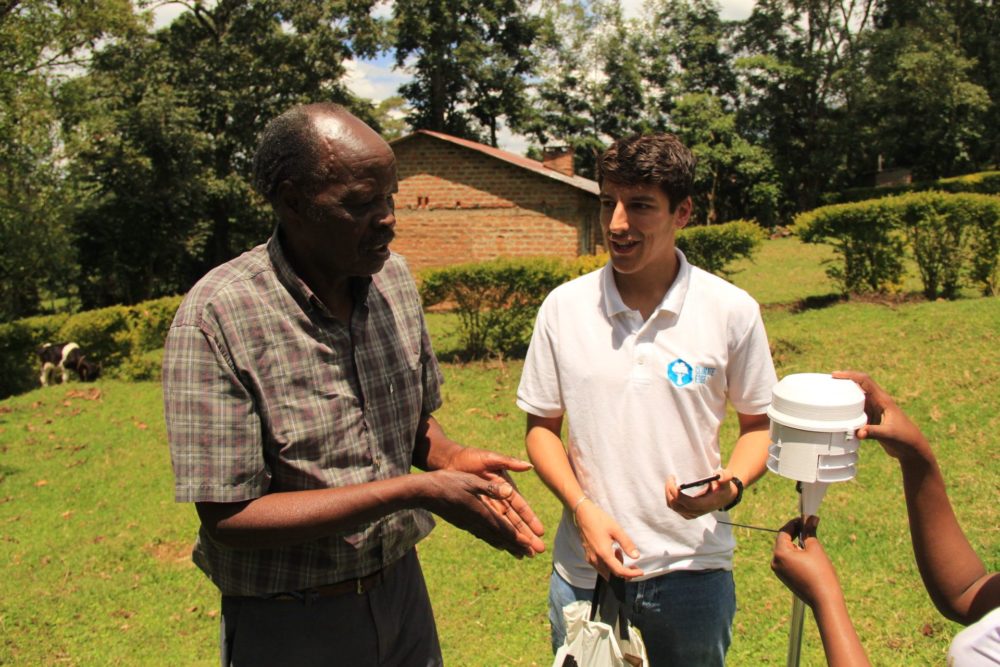Climate Edge, a UK-based startup that’s providing communication solutions for farmers and their suppliers in developing countries, has closed a $500,000 seed round. The funding came from UK-based Regenerate Ventures.
Access to the right information for smallholder farmers has always been a problem; what Climate Edge co-founders James Alden and Paul Baranowski realized was that the solutions to this problem already existed in the market.
In the UK, farmers have agronomists dedicated to their farms, who do weekly visits to monitor and provide information that help the farmers with key decision-making.
In smallholder agriculture in East Africa — Climate Edge’s focus region — the opposite is the case.
In Kenya, for instance, the ratio of agronomists to farmers is 1:1000, according to the National Agricultural Sector Extension Policy. This far exceeds the UN Food & Agriculture Organization‘s recommendation of 1:400. With such numbers, many farmers are simply not able to get crucial alerts on things like vendor events, pest outbreaks, or changes in market prices.
“Aggregated advice would be made generic in order to actually deliver it to that wide number of farmers. And that was [where we saw this] big gap in information transfer,” says Alden.
Using tech to give tailored, actionable information to farmers
Climate Edge’s target market is farmers who have the least access to information. These are predominantly smallholders with limited internet access, for whom data plan purchases are expensive.
The startup therefore uses SMS and interactive voice response.
Farmers get actionable information on soil conditions, tailored fertilizer plans, cropping calendars, and market access and prices. Climate Edge also provides information to financial providers to gauge farmers’ risk profiles in order to make decisions on financing.
The B2B startup has so far worked with over 700 organizations in the agricultural value chain in Kenya and Tanzania. Through them, they have delivered support to over 150,000 farmers.
Alden and Baranowski have extensively consulted in Latin America, Southeast Asia, and East Africa. One of the reasons they decided to focus on East Africa was the availability of mobile technology, with mobile payment systems like MPesa making it easier to work with farmers, Alden says.
Investor’s take
Paul Rous, managing director at Regenerate Ventures — and, like Alden, from a farming background himself — tells AFN the firm was established on account of the absence of early stage investors in agriculture.
“What I found when I looked at this space about five or six years ago, is that there were a lot of late-stage funds. There were a lot of family offices and angels – and late stage funds that didn’t understand farming,” he says.
Rous had also observed that agtech startups spent a lot of time trying to close seed rounds. Risk-averse investors weren’t willing to give startups their first institutional check, he says.
His firm’s backing for Climate Edge reflects its broader strategy of advancing the early-stage innovation that’s coming out of agtech hubs in parts of Europe, Israel, Singapore, Australia, and the US.
“We want to make sure that we are taking the technologies that are in the clusters, and we are scaling them to [realize their] benefits in developing markets,” Rous says.





